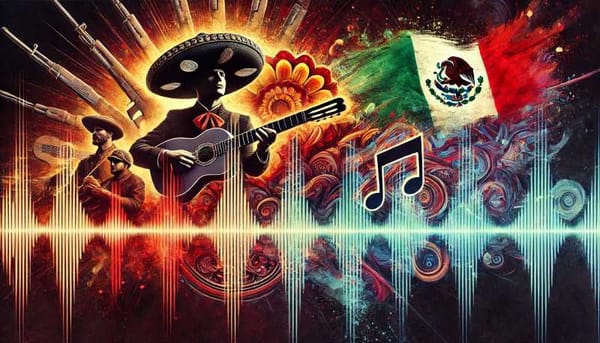Who was Nelson Mandela and what did he do?
Right up to the last decade of the last century, Nelson Mandela was the first black president in South Africa to face unfair rules of the political playing field that applied to all but were dictated by a minority.

Nelson Mandela was the first black president in South Africa - until the last decade of the last century - to face unequal rules of the game applicable to all but dictated by a minority, the undemocratic rules that placed the black majority in a slave-like status.
For a long time, Nelson Mandela was considered a terrorist for confronting what they called "apartheid", that series of laws that maintained the oppression of his people, among these, was the Area Laws that forced people of a certain race to live in designated areas and the Racial Classification Act that classified anyone who was not of European origin and made them carry IDs all the time, criminalizing them and making them suspicious. As well as the Mixed Marriage Prohibition Act which prohibited unions between people of different races.
Mandela campaigned for the freedom of his people - which cost him persecution, not only for himself but also for several people of his generation and later generations - directly confronting the apartheid regime, first with peaceful calls for civil disobedience and later with calls to take up arms, which translated into a desperate cry for freedom. These actions directly confronted him with the political system of his country and resulted in his imprisonment in 1961. One of the doubts of his followers was whether he would be sentenced to death, especially after convincing his co-religionists -arrested along with him- to stand firm in their struggle against the accusation of high treason they faced. His trial lasted five hours, his defense was fierce to the point of challenging the court by looking directly at the judge as he delivered his speech which ended with the following words: "I have always treasured the ideal of a free and democratic society; one in which people can live together in harmony and with equal opportunities. It is an ideal for which I have lived. It is an ideal for which I hope to live, and if necessary, it is an ideal for which I am willing to die".
Perhaps he could have become a martyr for his movement; perhaps it was international pressure amid UN sanctions against South Africa that prevented his death and faced a life sentence.
The actions of the "apartheid" regime hardened: the massacres went from adults to children in the face of peaceful demonstrations, Mandela was forgotten, but the struggle and visibility of the movement kept him alive; as well as the tireless support of his second wife Winnie who through activism permanently reminded her people of her husband's imprisonment.
The struggle for equality continued on several fronts. In 1988, the celebration of Nelson Mandela's 70th birthday was the occasion for a massive demonstration at Wembley Stadium, broadcast on international television. International pressure was mounting, internal actions in South Africa continued. Rumors of Mandela's deteriorating health were growing among the population.
Nelson Mandela spent twenty-eight years in prison, until he was released on February 11, 1990; his detractors feared that his release would increase racial bitterness; but once out of Victor Verster prison his words were not rancorous, but quite the opposite: Mandela offered a message of national reconciliation and made it clear that the enemy of his people was not the whites, but the "apartheid" regime.
In April 1994, multiracial elections were held for the first time in the history of South Africa, in which Mandela ran as a candidate, and on May 10 he assumed the presidency of his country. A year later, the Rugby World Cup was held in South Africa. For the black population it was a white event, for Mandela it was an opportunity for reconciliation and so an hour before the final match - that final to which the South African team, which ceased to belong to the white minority to become part of an entire country, had reached - with the green jersey he wore.
In April 1994, multiracial elections were held for the first time in the history of South Africa, in which Mandela ran as a candidate, and on May 10 he assumed the presidency of his country. A year later, the Rugby World Cup was held in South Africa. For the black population it was a white event, for Mandela it was an opportunity for reconciliation and so an hour before the final match -that final to which the South African team had reached, which ceased to belong to the white minority to become part of an entire country- with the green jersey bearing the number 6 of the team captain François Pienaar, before a majority of whites gathered in the stadium, Mandela went down to greet each player of the team wishing them luck amid voices from the stands shouting in unison: Nelson! Nelson!
The final against New Zealand - the unstoppable giant of that tournament - was won by South Africa; the cup was handed over by the man his people called "Madiba". His words were simple: "thank you brothers for what you did for our country". The response from the Springbok captain - as the South African team is known - was blunt: "This is nothing compared to what you have done for our country". What seemed unthinkable a few decades ago was happening: the possibility of seeing the black community and the white community united in a country like South Africa became a reality, the dream of peace took shape and whites began to recognize in Nelson Mandela a national leader, not exclusively of one race.
Mandela legitimized himself as the president of South Africa, not of a majority, but all South Africans, and although in his political work at the helm of the country where he was born he did not manage to put an end to inequalities, especially of an economic nature, he demonstrated that a country with different conditions was possible. A country where there would be no need to separate whites from blacks, where there would be no "ghettos", no need to walk around with identity papers and be labeled as a criminal just because of the color of one's skin.
It has been some decades since his government ended, many more since he spent his life in prison; his word committed to peace has remained intact and his congruence made him a living legend. His example has been recognized internationally, and it is worth mentioning that the president of the most powerful nation in the world in military and economic terms: Barack Obama wanted to share his congratulations to Mandela celebrating his 95th birthday, but the fact that the South African leader was in the hospital did not allow it.
Undoubtedly, Obama feels identified with the South African leader, as both are the first men with that skin color to become president of their respective countries, and although Obama was never a prisoner, in public speeches he confesses that he was viewed with suspicion only because of the color of his skin.
Hopefully, Mandela's example will leave its mark, not only on his people, but on the whole of humanity so that we realize that differences are always present, but that they are not a reason to separate us, but something that allows us to try to get to know each other better and help each other as human beings. Nelson Mandela died on December 5, 2013.
Sources: UNAM Radio by José Antonio Zavaleta Landa, article La palabra compremetida con la paz. Recuerdos de una voz contra la opresion de un pueblo. (The word committed to peace. Memories of a voice against the oppression of a people.)




